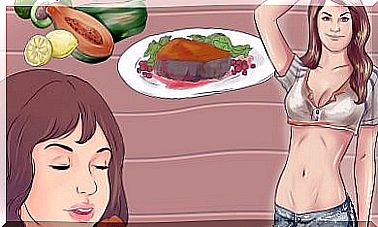How To Deal With Fainting
A blackout is a brief loss of consciousness due to decreased blood flow to the brain. This episode can last up to a couple of minutes and the person can usually recover quickly and completely. However, sometimes a fainting can have certain causes, such as: bumps, impression or poor feeding.
When a person passes out, not only can they experience loss of consciousness. You may also suffer from loss of muscle tone and paleness, as well as feeling weak and nauseous just before fainting.
Some of the most common causes of fainting
- Strong emotions
- Get up abruptly
- Prolonged standing
- Coughing or straining to have a bowel movement
- Use of certain medications
- Low blood sugar
If you have a history of fainting, it is best to follow the instructions given by your doctor on how to prevent it. For example, if you know the different situations that cause you to faint, it is best to avoid them.
Measures when fainting
Some recommendations to help a person who has fainted are:
- Help the fainted person fall to the ground without hurting himself.
- Place it on your back and with your feet higher than your head. This way the blood will circulate faster and more oxygen will reach the brain.
- Check that his vital signs are normal.
- Loosen clothing, belts, and anything that can restrict blood flow. Causes to clear the environment and refresh the environment.
- It is necessary to keep the person lying down for – at least – 10 to 15 minutes or sit them forward with the head between the knees.
- Rub alcohol on the wrists (hands), the nape of the neck and, in addition, refresh the forehead; preferably do not put alcohol in the nose of the fainted, as this instead of favoring him can cause glasses to burst inside the nose.
- It is not advisable to give him something to drink or eat, it is better to wait for him to recover a little.
- When the fainted person comes to, cover him well. Sometimes fainting is followed by a feeling of chills, accompanied by tremors.
If the person does not respond for several minutes, it is advisable to contact the emergency services.
If you are one of those people who get dizzy frequently, it is recommended that when you get up you wait sitting for a minute or two before standing up. In case of fasting, take a glass of orange juice with sugar; if it’s from exercise, drink several glasses of water a day.
When to go to the doctor?
- When the person passed out takes more than a couple of minutes to regain consciousness.
- When the person passes out too much.
- When you have diabetes or are pregnant.
- When the person bleeds, is injured, or after fainting, he fell from a considerable height.
- When you have seizures or if you feel pain.
- When your chest bothers you or you lose the ability to speak, see, or move.
Sometimes fainting has complications
Although most faints are temporary situations, there are others that can have a complication. That is why it is necessary to go to the doctor when this happens, so that he can give a proper diagnosis and treatment.
Sometimes an EEG, EKG, or blood test may be ordered . This will help identify the reason for the fainting spell.
Last tips
It must be very clear that you cannot lose your cool. In the case of fainting, the one who keeps calm helps more than the one who speaks the hardest.
Don’t try to pick up the fainted person! This could cause discomfort in your limbs, and when you wake up, you may feel a lot of pain and abuse.
The hours after you pass out can be very important. The person should be kept under observation, especially if the cause is not known with certainty and they could faint again.









